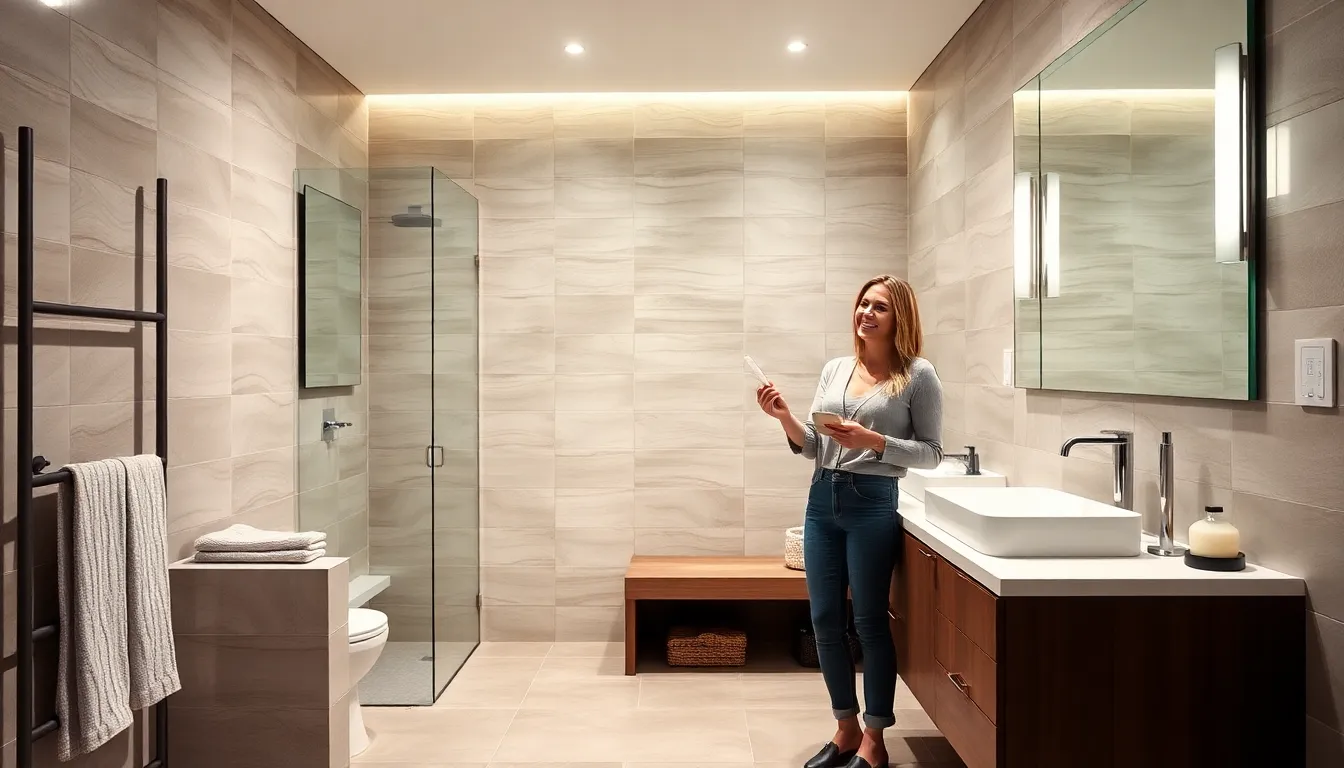The world of reality television often blurs the lines between fact and fiction, and 90 Day Fiancé is no exception. This popular show has captivated audiences with its dramatic love stories and cultural clashes, but many viewers are left wondering: is it real? With couples navigating the complexities of international relationships, the show raises questions about authenticity and the true nature of love.
As fans tune in week after week, they can’t help but speculate about the behind-the-scenes reality of the show. Are the couples genuinely in love, or is it all scripted for entertainment? This article dives into the reality of 90 Day Fiancé, exploring the factors that contribute to its allure and the truths that lie beneath the surface. Prepare to uncover what makes this show both fascinating and controversial.
Table of Contents
ToggleOverview of 90 Day Fiancé
90 Day Fiancé airs on TLC and showcases couples who navigate international relationships. The series follows couples who apply for K-1 visas, which allows foreign partners to enter the United States for 90 days. During this period, they must decide to marry or return to their home countries.
The show’s format highlights various challenges, including cultural differences, communication barriers, and family dynamics. Each season features multiple couples, providing viewers a mix of heartwarming moments and dramatic confrontations. This blend of emotions fuels audience engagement and discussion.
Viewers often question the authenticity of the relationships presented on screen. Critics argue that certain storylines may be manipulated for entertainment purposes. Despite this, many couples from the show have built genuine relationships, resulting in marriages and children.
Furthermore, 90 Day Fiancé has spawned multiple spin-offs, expanding its reach and popularity. Each spin-off introduces new couples and unique storylines, retaining the original show’s essence. The show’s dynamic nature attracts a diverse audience, contributing to its ongoing success and relevance in reality television.
The Concept Behind 90 Day Fiancé

90 Day Fiancé combines reality television with the complexities of international romance. The show explores relationships forged through the K-1 visa process, raising questions about authenticity and connection.
Reality Television vs. Scripted Content
Reality television often blurs the lines between real life and scripted drama. In 90 Day Fiancé, producers guide narrative arcs, sometimes enhancing conflicts or scenarios to heighten viewer interest. While couples face genuine challenges, certain moments may feel contrived for entertainment. Journalists note that many interactions may not entirely reflect reality, though the emotions and experiences presented can resonate as real for the couples involved.
Cultural Impact on Relationships
90 Day Fiancé highlights the profound cultural impacts on romance. Couples navigate different traditions, family expectations, and communication styles. Viewers witness the tension arising from cultural misunderstandings, which often mirrors real-life international relationships. The show’s portrayal of these dynamics contributes to its popularity, as it offers insight into how love transcends borders despite significant differences.
Behind the Scenes of 90 Day Fiancé
The production of 90 Day Fiancé plays a crucial role in shaping the narratives depicted on the show. Behind the glamorous settings and emotional moments lies a structured process that influences both storylines and the experiences of the cast.
Production Influence on Storylines
Producers on 90 Day Fiancé craft story arcs that emphasize drama and tension, which may lead to heightened emotions and conflicts. This process often involves editing choices that spotlight specific incidents while downplaying others, leading to perceptions of a scripted reality. For instance, producers may encourage couples to discuss sensitive topics to create engaging content. While many couples face real challenges, the show often amplifies these moments to capture viewers’ attention. Real emotions intermingle with guided interactions, resulting in a complex portrayal of love and relationships.
Cast Selection Process
The casting of couples on 90 Day Fiancé undergoes a meticulous process aimed at ensuring diverse and compelling stories. Couples typically apply through casting calls or are recruited based on their unique circumstances. Producers assess potential casts based on their backgrounds, emotional narratives, and relationship dynamics, seeking those that exemplify the complexities of international romance. Selected couples undergo interviews and screen tests to evaluate their chemistry and readiness for public exposure. This selection process focuses on assembling personalities that resonate with audiences, often leading to entertaining yet dramatic realities.
Viewer Perception of Authenticity
Viewer perception of authenticity plays a crucial role in the success of 90 Day Fiancé. As audiences engage with the show, they often express opinions regarding the legitimacy of the couples and the storylines depicted.
Audience Reactions and Critiques
Audience reactions vary significantly, with some viewers questioning the authenticity of the portrayed relationships. Many fans debate whether it’s all scripted, especially when certain dramatic moments seem exaggerated. Critics often highlight specific scenarios, suggesting that producers may manipulate plotlines for entertainment. Despite this, numerous viewers resonate with the genuine emotions displayed by some couples, leading to a divided opinion on the show’s authenticity. Online forums and fan pages frequently feature discussions where viewers share personal theories about couples’ true motives and the validity of their connections.
Social Media Impact on Reality Shows
Social media significantly impacts viewer perception of reality shows like 90 Day Fiancé. Platforms such as Twitter and Instagram allow fans to engage directly with cast members, influencing public opinion regarding their authenticity. Viewers often share real-time reactions and critiques during episodes, shaping how others perceive the show. Hashtags and trending topics highlight discussions around specific couples or events, amplifying scrutiny and analysis. This online discourse can create a sense of community among fans while simultaneously fueling skepticism about the show’s portrayal of real-life relationships. Consequently, the show’s narrative can shift in response to viewer sentiment, indicating a close relationship between audience feedback and reality television content.
Expert Opinions on Reality TV Authenticity
Experts offer valuable insights into the authenticity of 90 Day Fiancé, highlighting the complexities of relationships on reality television. Both relationship specialists and critics provide different perspectives on the show’s portrayal of love and conflict.
Insights from Relationship Experts
Relationship experts emphasize that while many couples face genuine challenges, producers influence narrative development significantly. They often stress that intercultural relationships present substantial obstacles, including differing expectations and communication styles. Experts assert that some couples display authentic emotions, yet the editing process may amplify conflict to maintain viewer interest. They note that understanding each couple’s background and dynamics is crucial for assessing authenticity. For instance, licensed therapists highlight the importance of open communication and adaptability in overcoming cultural barriers, suggesting that real relationships require both parties to navigate complex emotional landscapes.
Perspectives from Reality TV Critics
Reality TV critics argue that shows like 90 Day Fiancé blur the lines between reality and scripted content. They contend that producers often fabricate or exaggerate situations to create drama and maintain ratings. Critics point to specific instances where couples’ stories seem orchestrated, generating skepticism about authenticity. While they recognize some genuine interactions, critics often question the motivation behind certain portrayals. They emphasize that viewers may misinterpret manipulated scenarios as real, leading to distorted perceptions of relationships. In summary, critics maintain that the entertainment value frequently takes precedence over the authenticity of represented experiences, prompting ongoing debates about the nature of reality TV.
The debate surrounding the authenticity of 90 Day Fiancé continues to engage viewers and critics alike. While some couples undoubtedly face real challenges in their relationships, the influence of producers and scripted elements can’t be ignored. This blend of reality and entertainment creates a captivating viewing experience that resonates with many.
As audiences tune in to witness the highs and lows of international romance, they’re drawn to the complexities that make these stories relatable. Ultimately, whether the love portrayed is genuine or enhanced for drama, the show’s ability to spark conversations about love, culture, and relationships remains undeniable.




